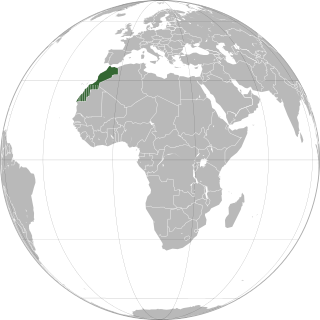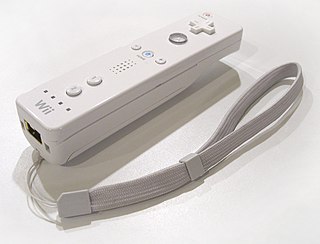
Blizzard Entertainment, Inc. is an American video game developer and publisher based in Irvine, California. A subsidiary of Activision Blizzard, the company was founded in February 1991 as Silicon & Synapse, Inc. by three graduates of the University of California, Los Angeles: Michael Morhaime, Frank Pearce and Allen Adham. The company originally concentrated on the creation of game ports for other studios' games before beginning development of their own software in 1993, with games like Rock n' Roll Racing and The Lost Vikings. In 1993, the company became Chaos Studios, Inc., and then Blizzard Entertainment soon after being acquired by distributor Davidson & Associates early in the following year. Shortly after, Blizzard released Warcraft: Orcs & Humans.

A video game developer is a software developer specializing in video game development – the process and related disciplines of creating video games. A game developer can range from one person who undertakes all tasks to a large business with employee responsibilities split between individual disciplines, such as programmers, designers, artists, etc. Most game development companies have video game publisher financial and usually marketing support. Self-funded developers are known as independent or indie developers and usually make indie games.

A gamer is a someone who plays interactive games, either video games, tabletop role-playing games, skill-based card games, or any combination thereof, and who plays for usually long periods of time. Originally a hobby, gaming has evolved into a profession for some, with some gamers routinely competing in games for money, prizes, or awards. In some countries, such as the US, UK, and Australia, the term "gaming" can refer to legalized gambling, which can take both traditional and digital forms, such as through online gambling. There are many different gamer communities around the world. Since the advent of the Internet, many communities take the form of Internet forums or YouTube or Twitch virtual communities, as well as in-person social clubs. In 2021, there were an estimated 3.24 billion gamers across the globe.

Societal attitudes toward homosexuality vary greatly across different cultures and historical periods, as do attitudes toward sexual desire, activity and relationships in general. All cultures have their own values regarding appropriate and inappropriate sexuality; some sanction same-sex love and sexuality, while others may disapprove of such activities in part. As with heterosexual behaviour, different sets of prescriptions and proscriptions may be given to individuals according to their gender, age, social status or social class.
Lesbian, gay, bisexual, and transgender (LGBT) characters have been depicted in video games since the 1980s. Throughout the history of video games, LGBT characters have been almost nonexistent for a long time, reflecting the overall heteronormativity of the medium. While there has been a trend towards greater representation of LGBT people in video games, they are frequently identified as LGBT in secondary material, such as comics, rather than in the games themselves. Often, LGBT characters and themes, when they are included, are underrepresented, minimized, or watered down. Queer games and characters have also often found themselves being the subjects of cultural crossfires or moral panics. In 2018, Sam Greer of GamesRadar+ found only 179 games commercially released games with any LGBT representation, only 83 of which have queer characters who are playable characters, and only 8 of those games feature a main character who is pre-written as queer as opposed to them being queer as an option.

Lesbian, gay, bisexual and transgender (LGBT) people in Morocco face significant challenges not experienced by non-LGBT residents.

Joystiq was a video gaming blog founded in June 2004 as part of the Weblogs, Inc. family of weblogs, now owned by AOL. It was AOL's primary video game blog, with sister blogs dealing with MMORPG gaming in general and the popular MMORPG World of Warcraft in particular.
Ex-ex-gay people are those who formerly participated in the ex-gay movement in an attempt to change their sexual orientation to heterosexual, but who then later went on to publicly state they had a non-heterosexual sexual orientation.

The Wii Remote, also known colloquially as the Wiimote, is the primary game controller for Nintendo's Wii home video game console. An essential capability of the Wii Remote is its motion sensing capability, which allows the user to interact with and manipulate items on screen via motion sensing, gesture recognition, and pointing using an accelerometer and optical sensor technology. It is expandable by adding attachments. The attachment bundled with the Wii console is the Nunchuk, which complements the Wii Remote by providing functions similar to those in gamepad controllers. Some other attachments include the Classic Controller, Wii Zapper, and the Wii Wheel, which was originally released with the racing game, Mario Kart Wii.

Tomodachi Collection,, is a social simulation video game for the Nintendo DS, released exclusively in Japan on June 18, 2009. A sequel, Tomodachi Life, was released for the Nintendo 3DS in Japan on April 18, 2013, and in North America and Europe on June 6, 2014.
The lesbian, gay, bisexual, transgender, queer, and other non-heterosexual or non-cisgender (LGBTQ+) community is prevalent within sports across the world.

The portrayal of gender in video games, as in other media, is a subject of research in gender studies and is discussed in the context of sexism in video gaming. Although women make up about half of video game players, they are significantly underrepresented as characters in mainstream games, despite the prominence of iconic heroines such as Samus Aran or Lara Croft. Women in games often reflect traditional gender roles, sexual objectification, or stereotypes such as the "damsel in distress". Male characters are frequently depicted as big and muscular, and LGBT characters have been slow to appear due to the cis-heteronormativity of the medium.

GaymerX is an American public-benefit nonprofit corporation based in California dedicated to celebrating and supporting LGBTQ+ people and culture in the world of gaming, with a focus on video games. GaymerX puts on a fan-facing convention with LGBT-oriented gaming and geek culture, or gaymer, with panels primarily focused on LGBT issues and debates in the gaming industry.

For the Purpose of Protecting Children from Information Advocating a Denial of Traditional Family Values, commonly known as the Russian anti-LGBT law or as the Russian anti-gay law, is a law of Russia. It was unanimously passed by the State Duma on 11 June 2013, unanimously passed by the Federation Council on 27 June 2013, and signed into law by President Vladimir Putin on 30 June 2013.
Gaming In Color is a documentary film by MidBoss about queer people in gaming. Directed by Philip Jones, Gaming In Color focuses on lesbian, gay, bisexual, transgender, and queer (LGBTQ) issues in video games, gaymer culture and events, and the rise of queer themes in gaming. The film is largely interview based, and features notable gay gaming personalities in the industry and communities.

Tomodachi Life, known in Japan as Tomodachi Collection: New Life, is a social simulation video game developed and published by Nintendo for the Nintendo 3DS, which is the sequel to the Japan-exclusive Nintendo DS title Tomodachi Collection. The game follows the day-to-day interactions of Mii characters, referred to as "islanders", as they build relationships, solve problems, and converse with the player.
Jaime Woo is a Canadian writer and game developer. He is best known for his 2013 book Meet Grindr: How One App Changed the Way We Connect, an exploration of the impact of Grindr on social interaction in the gay male community which was a shortlisted nominee for the Lambda Literary Award for non-fiction at the 26th Lambda Literary Awards.
Straightwashing is portraying LGB or otherwise queer characters in fiction as heterosexual (straight), making LGB people appear heterosexual, or altering information about historical figures to make their representation comply with heteronormativity.
Dota is a series of strategy video games. The series began in 2003 with the release of Defense of the Ancients (DotA), a fan-developed multiplayer online battle arena (MOBA) mod for the video game Warcraft III: Reign of Chaos and its expansion, The Frozen Throne. The original mod features gameplay centered around two teams of up to five players who assume control of individual characters called "heroes", which must coordinate to destroy the enemy's central base structure called an "Ancient", to win the game. Ownership and development of DotA were passed on multiple times since its initial release until Valve hired the mod's lead designer IceFrog and after an ongoing legal dispute with Blizzard Entertainment, the developer of Warcraft III, brokered a deal that allowed for Valve to inherit the trademark to the Dota name.












